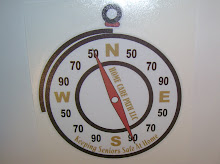Diversional activity involves the stimulation a senior experiences from an interest in leisure activity. This can be a balancing act with a senior who is experiencing memory loss.
With memory loss the senior depends on similar routines, familiar acquaintances, and a static living space to feel safe. Too much change can disrupt the seniors sense of self, facilitating a regression into the past.
Change should be slow, with the focus on being available to the senior in the moment , focussing on shared time to develop trust. As the trusting relationship unfolds subtle techniques to insert opportunity for diversional activity present themselves.
The interest in (leisure) diversional activity are what make the senior feel human, whole, and connected. Strategies for fostering the seniors interest in leisure activity include:
1. Listen to the seniors conversation, and attempt to meet them where they are. Talk a bit on the subject the senior has verbalized.
2. Encourage the senior to share stories on past experiences. Suggest you accompany the senior some time to the geographical location of the past experience.
3. Listen to music that you and the senior have discussed and both agreed you like to hear. Include the senior in the planning. Share the planning process.
4. Always take the opportunity to point out and view life occurring from a window. This can be birds, a passing school bus, or pizza delivery.
5. Make plans to watch a ball game, movie, or special show on television together. Discuss the chosen show fostering anticipatory excitement.
6. Explore the immediate surroundings, outside but near the residence. Point out changes related to the season. Color of grass, heat of sun, shade of tree, presence of people, wandering pets.
7. With trips allow time for visitors. Try not to view an approaching community member as an inconvenience. Allow the community member, and the senior time to share a conversation. Interject conversation to help maintain a comfortable flow.
8. Listen to what the senior says about food and observe the seniors behavior. Simply does the senior eat the food that is being made available to them. If not, could a change result in more of the food being consumed.
9. Read a newspaper or magazine article with the senior. Slowly, pausing at times and encouraging comments, discussion.
10. Recognize the gravity of the act of sharing life experiences with another. All the human senses are participating in the collection of data used to develop a personal memory of the time shared. The presence of another reinforces the sense of a hopeful, forward motion associated with time invested.
Home Care Path www.homecarepath.com coordinates elder home care assistants in the Baraboo, Wisconsin area.
Saturday, May 7, 2011
Subscribe to:
Post Comments (Atom)

No comments:
Post a Comment